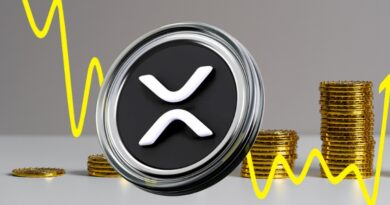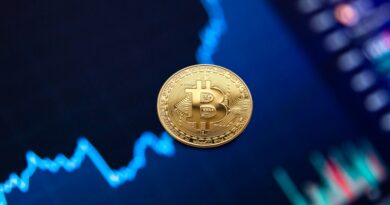China Boosts US Treasury Holdings Amid Escalating Trade War Tensions
When tensions between two of the world’s largest economies heat up, most people expect financial ties to cool down, right? But what China did recently might just make you question that logic.
While the U.S.-China trade war picked up steam, many were expecting Beijing to pull away from American assets. However, China did the opposite—it increased its investments in U.S. Treasury bonds.
So why would a country boost investments in another nation’s debt, especially when political and trade relationships are rocky?
What Are U.S. Treasury Bonds?
Let’s pause here—for a quick refresher. U.S. Treasury bonds are essentially loans investors give to the U.S. government. In return, the government promises to pay back the full amount, plus interest, over a set time. They’re widely considered among the safest assets globally.
In simple terms:
- You buy a Treasury bond
- The U.S. uses your money
- You get paid back with interest later
Now imagine a nation doing that—on a massive scale. That’s what China has been doing for years. And despite diplomatic drama, they’re still doing it.
How Much U.S. Debt Does China Hold Today?
By the end of 2023, China held about $816.3 billion in U.S. Treasury bonds. That’s an increase of nearly $19 billion in just one month. Surprisingly, this bump came as political tensions between China and the U.S. deepened.
Why would they load up on U.S. debt if they’re not on good terms?
Global reserves still flow toward security
The answer lies in the uniqueness of U.S. government bonds:
- Stability – The U.S. dollar is still viewed as the safest bet for foreign exchange reserves.
- Liquidity – U.S. Treasuries are easy to buy and sell quickly whenever needed.
- Yield – As interest rates rose, Treasury bonds began offering better returns.
For a country like China, which holds trillions in foreign reserves, parking some of that money in American debt still makes economic sense—even if political ties are strained. It’s a bit like arguing with a friend at lunch, then still trusting them to hold your wallet because you know they’re not going to steal it.
Did China Change Its Strategy?
Some think this signals that China isn’t trying to “divest” from the U.S. like many experts believed. In fact, experts suggested that China was slowly reducing its reliance on the dollar. But then—bam!—this recent buy-up suggests a level of financial realism.
It’s like saying “We might not be best friends, but I still trust your security system.” Funny how money makes diplomacy flexible.
Interestingly, this change also contrasts with its earlier behavior. Just a few years ago, China was selling off U.S. debt aggressively. Now they’re back shopping.
Curious about bond yield trends? Here’s a quick resource on how interest rates affect market volatility.
What Does This Mean for the Markets?
For investors, this move by China is a signal, and an important one.
Here’s why:
- Confidence in U.S. economic stability – If China thinks U.S. debt is worth buying, it reassures other investors too.
- Less chance of bond sell-offs – Some had feared China would dump U.S. bonds to hurt the dollar. This move suggests the opposite.
- Impact on interest rates – More buyers of U.S. debt help keep borrowing costs lower in the U.S.
All these factors directly affect the markets. If you’re investing in stocks or bonds, it’s good to know who’s supporting the system behind the scenes. And yes—China is again playing that role.
So, Is This a Political Move?
Some analysts say it’s not about politics at all—it’s about smart central banking. China’s central bank wants to manage risk, and buying U.S. Treasuries helps them do that.
Think of it like this: If you’re carrying a backpack full of valuable foreign currency, you want to make sure it’s tucked safely, not hanging out loose. U.S. Treasuries are that safety pocket.
Want to see how macro trends shape strategies? Explore this post on investing in volatile markets.
Will China Keep Buying More?
It’s hard to say. The increase could be a one-time decision linked to currency shifts or other factors like bond yields and trade balance. Or it could signal a renewed strategy of portfolio balance that includes more U.S. dollar assets.
Either way, this move shows China hasn’t closed the door on economic cooperation—even if the political messages say something else.
What Can You Learn From All This?
Well, three key points stand out:
- Money often trumps politics – Economic decisions rely on stability, not headlines.
- Diversification – Smart portfolios (even national ones) spread risk. U.S. debt remains a core holding for many central banks.
- Rate environments matter – Rising bond yields can attract buyers—even skeptical ones.
Curious about how bond yields connect to strategy? See our article on building a long-term investment strategy.
What Happens Next?
Keep an eye on future purchasing data from China. Each increase or decrease tells a bigger story about how China sees the global economy, the dollar, and its relationship with the U.S.
The more China buys, the stronger the indication that—even amidst political conflict—trust in America’s economic infrastructure endures.
Need help analyzing these kinds of shifts? Read about how to identify trend reversals before they happen.
Final Thoughts
It might feel odd that China is buying up U.S. debt while talking tough on trade. But global finance isn’t always emotional. Often, it’s just math, risk, and long-term thinking.
For investors like you, understanding moves like this can give valuable insight into market behaviors and signals that go beyond the headlines.









